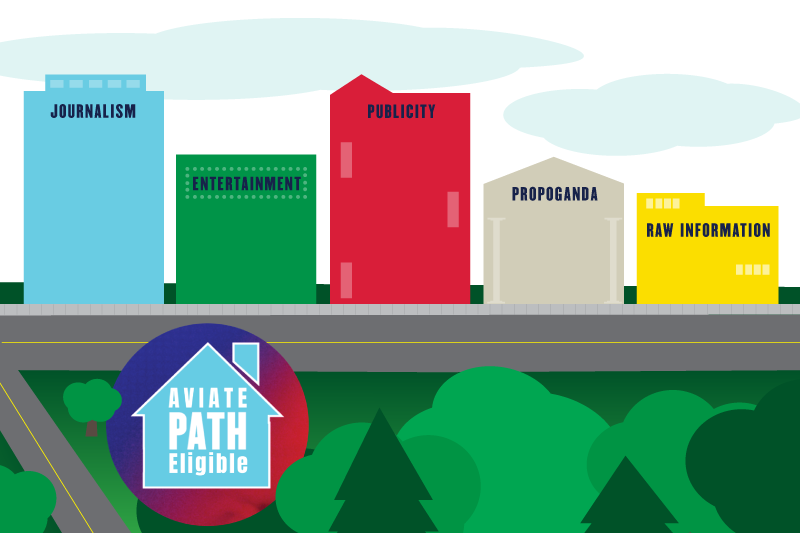University Libraries

Know Your Neighborhood
By Katy Kelly
The variety of news you can find online is immense and can be intense. My new self-guided workshop, “Information Neighborhoods: Interacting with Online News Like a Good Neighbor." I designed it to help individuals better understand the type and purpose of online news by employing a simple sorting method called information neighborhoods, a concept developed by the Center for News Literacy. The neighborhoods are journalism, entertainment, publicity, propaganda and raw information. When you’re interacting with news online or discussing it with friends, you can be a good neighbor by being able to distinguish between these types.
I wanted to share this particular model with campus, especially following the insurrection at the U.S. Capitol on Jan. 6. Evidence shows that online misinformation spread rapidly leading up to the deadly event as an attempt to undermine our democracy. In this workshop, I share my own news habits, and participants are invited to do the same. I apply the information neighborhood concept to the topic of screen time and children, and I showcase different online examples and how they might fall into each neighborhood. Later, participants can reflect on how they can apply the information neighborhood concept to their educational career, personal life and relationships.
Beth McMurtrie’s Jan. 12 article “Teaching in the Age of Disinformation'' in the Chronicle of Higher Education talks about approaches to addressing propaganda and conspiracy theories in the classroom. I agreed with Professor Jennifer Mercieca at Texas A&M; it’s important to be direct consumers of news. To support this habit, I highlight and encourage use of premium online news sources available without paywalls to UD students, staff and faculty so they can find reliable information in their personal and academic pursuits. A post-graduation consideration: Public libraries often provide free subscription access to news as well, so check with your local system.
This workshop, I am hopeful, will help everyone better understand the different types and purposes of information seen online. As of this writing, 172 students have already completed the workshop after being open for one day. All are welcome to participate; it only takes about 30 minutes, and the videos and questions throughout the tutorial keep participants engaged in active learning. Enjoy!
— Katy Kelly is associate professor and coordinator of marketing and engagement in the University Libraries; she also is the Libraries’ liaison to the Department of Communication. She loves the New York Times app using the UD subscription and thinks you should read the article “I Recommend Eating Chips” by Sam Anderson.
